In October, The Help Group presents its annual Summit – a cutting edge conference that features leading experts in basic and applied research, and evidence-based best practices in assessment, intervention and treatment of learning disabilities. Each year, the program provides a rich and informative experience for its attendees.
This year’s Summit 2017 is scheduled for Friday, October 13th and Saturday, October 14th at the Skirball Cultural Center in Los Angeles. A few highlights of the program include:
 Special Presentation Speaker John Elder Robison, a New York Times Best-Selling Author, Speaker, Educator and Advocate, will present twice on Saturday. His first session that morning is titled “Life With Autism: A Different Perspective,” and the following session is a workshop titled, “The Challenge and Opportunity of Neurodiversity; A Community Approach.” Robison will discuss both his advocacy work and his writing, such as Look Me In The Eye: My Life with Asperger’s – an autobiographical novel that delves into how his life was transformed by the discovery of his Asperger’s at the age of 39.
Special Presentation Speaker John Elder Robison, a New York Times Best-Selling Author, Speaker, Educator and Advocate, will present twice on Saturday. His first session that morning is titled “Life With Autism: A Different Perspective,” and the following session is a workshop titled, “The Challenge and Opportunity of Neurodiversity; A Community Approach.” Robison will discuss both his advocacy work and his writing, such as Look Me In The Eye: My Life with Asperger’s – an autobiographical novel that delves into how his life was transformed by the discovery of his Asperger’s at the age of 39.
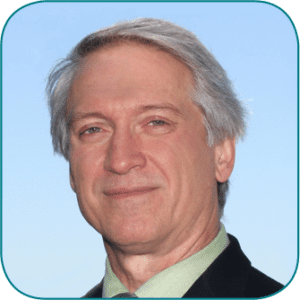 Keynote Speaker Stephen Hinshaw, PhD, will present twice, first on Friday with a session titled “The Latest Findings on ADHD – Especially in Girls and Women,” and second on Saturday with a session titled “Mental Health Stigma & Families: The Next Frontier” Hinshaw’s first presentation will focus on the genetic vulnerability and environmental risks (ranging from toxins to maltreatment) that shape the onset and development of ADHD, with a particular emphasis on a large, longitudinal study of girls with ADHD. His Saturday presentation will discuss the gap between mental health knowledge and mental health attitudes in the U.S. (and abroad), and the shame and stigma that still pertain to child, adolescent, and parent mental illness.
Keynote Speaker Stephen Hinshaw, PhD, will present twice, first on Friday with a session titled “The Latest Findings on ADHD – Especially in Girls and Women,” and second on Saturday with a session titled “Mental Health Stigma & Families: The Next Frontier” Hinshaw’s first presentation will focus on the genetic vulnerability and environmental risks (ranging from toxins to maltreatment) that shape the onset and development of ADHD, with a particular emphasis on a large, longitudinal study of girls with ADHD. His Saturday presentation will discuss the gap between mental health knowledge and mental health attitudes in the U.S. (and abroad), and the shame and stigma that still pertain to child, adolescent, and parent mental illness.
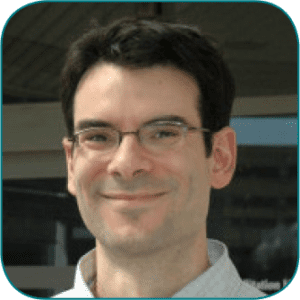 Keynote Speaker Lonnie Zwaigenbaum, MD, is an Adjunct Professor and AHFMR Health Scholar, Co-director – Autism Research Centre, Associate Professor – Department of Pediatrics at the University of Alberta. On the first day of Summit, Zwaigenbaum will kick off the morning with a session titled “Pushing the Boundaries of Early Diagnosis of Autism Spectrum Disorder.” The goals of this session are to orient attendees to advances in early detection and diagnosis of ASD, including the potential for identification of infant and toddlers at risk as symptoms first emerge.
Keynote Speaker Lonnie Zwaigenbaum, MD, is an Adjunct Professor and AHFMR Health Scholar, Co-director – Autism Research Centre, Associate Professor – Department of Pediatrics at the University of Alberta. On the first day of Summit, Zwaigenbaum will kick off the morning with a session titled “Pushing the Boundaries of Early Diagnosis of Autism Spectrum Disorder.” The goals of this session are to orient attendees to advances in early detection and diagnosis of ASD, including the potential for identification of infant and toddlers at risk as symptoms first emerge.
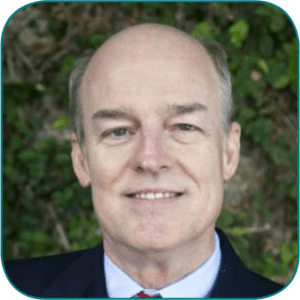 LD Keynote Speaker Jack Fletcher, PhD, will present his session titled “Understanding Dyslexia and Its Implications for Identification and Treatment” on Saturday morning. He will discuss current research on dyslexia and its implications for identification and treatment, and the role of academic and cognitive assessments in identification and evaluation. Fletcher is a Hugh Roy and Lillie Cranz Cullen Distinguished University Professor at the University of Houston.
LD Keynote Speaker Jack Fletcher, PhD, will present his session titled “Understanding Dyslexia and Its Implications for Identification and Treatment” on Saturday morning. He will discuss current research on dyslexia and its implications for identification and treatment, and the role of academic and cognitive assessments in identification and evaluation. Fletcher is a Hugh Roy and Lillie Cranz Cullen Distinguished University Professor at the University of Houston.
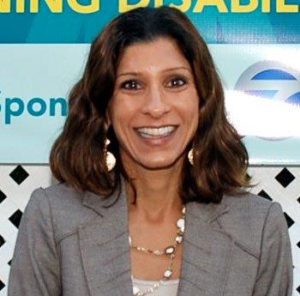 Friday morning, Shafali Jeste, MD, will present her session titled “On the Road to Precision Health: Biomarkers and Clinical Trials in Autism Spectrum Disorder.” The presentation will discuss the reasons that we are trying to identify brain based biomarkers in ASD, and introduce EEG (electroencephalography) as a tool to study brain based biomarkers in ASD. Jeste is an Associate Professor in Psychiatry, Neurology and Pediatrics at the University of California, Los Angeles, David Geffen School of Medicine, Center for Autism Research and Treatment.
Friday morning, Shafali Jeste, MD, will present her session titled “On the Road to Precision Health: Biomarkers and Clinical Trials in Autism Spectrum Disorder.” The presentation will discuss the reasons that we are trying to identify brain based biomarkers in ASD, and introduce EEG (electroencephalography) as a tool to study brain based biomarkers in ASD. Jeste is an Associate Professor in Psychiatry, Neurology and Pediatrics at the University of California, Los Angeles, David Geffen School of Medicine, Center for Autism Research and Treatment.
 Dr. Maja Matarić, PhD, will also present Friday morning. Matarić is a Chan Soon-Shiong Professor of Computer Science, Neuroscience, and Pediatrics at the University of Southern California. Her session is called “Endowing Socially Assistive Robots with the Ability To Help Young People with Autism and Other Special Needs.” Matarić will discuss her research developing robot-assisted therapies for children with autism spectrum disorders.
Dr. Maja Matarić, PhD, will also present Friday morning. Matarić is a Chan Soon-Shiong Professor of Computer Science, Neuroscience, and Pediatrics at the University of Southern California. Her session is called “Endowing Socially Assistive Robots with the Ability To Help Young People with Autism and Other Special Needs.” Matarić will discuss her research developing robot-assisted therapies for children with autism spectrum disorders.
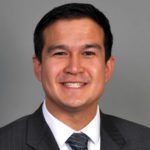 Ty Vernon, PhD, is a Director at the Koegel Autism Center and an Assistant Professor of Clinical Psychology at the University of California, Santa Barbara. On Saturday, Vernon will present “Modifying Pivotal Response Treatment to Jump-Start Social Development in Toddlers with ASD.” This session will focus on the evolution and current research of the Pivotal Response Treatment model, an autism intervention that combines strength-based motivational strategies with behavioral techniques to transform child development.
Ty Vernon, PhD, is a Director at the Koegel Autism Center and an Assistant Professor of Clinical Psychology at the University of California, Santa Barbara. On Saturday, Vernon will present “Modifying Pivotal Response Treatment to Jump-Start Social Development in Toddlers with ASD.” This session will focus on the evolution and current research of the Pivotal Response Treatment model, an autism intervention that combines strength-based motivational strategies with behavioral techniques to transform child development.
To learn more about these sessions and register for The Help Group Summit, please click here.
